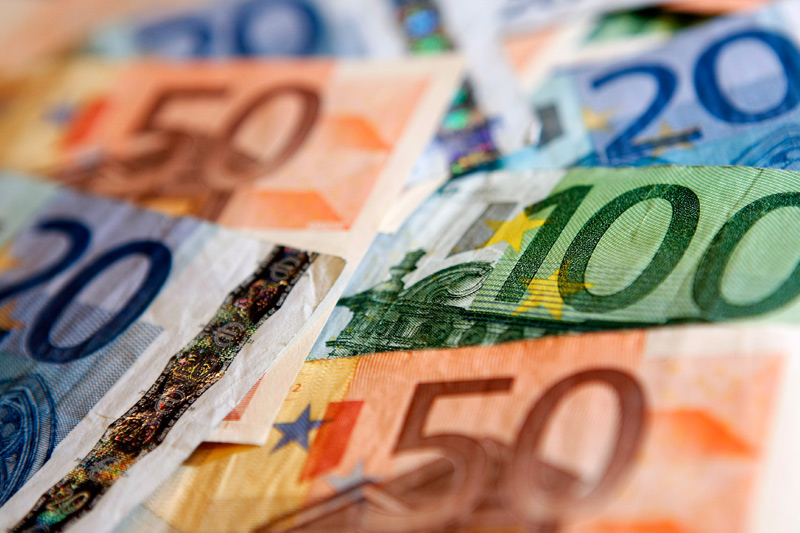Investing.com - The euro was trading close to session lows against the dollar on Tuesday as subdued German inflation data added to concerns that the European Central Bank may have to act to tackle low inflation in the euro one.
EUR/USD touched session lows of 1.3812 and was last down 0.19% to 1.3822.
The pair was likely to find support at 1.3790, the low of April 24 and resistance at 1.3878, the session high.
The euro weakened across the board after Germany’s Federal Statistics Bureau reported that consumer prices fell 0.2% this month, and increased 1.3% on a year-over-year basis. Market expectations had been for a monthly decline of 0.1% and an annual increase of 1.4%.
The data came as investors were looking ahead to preliminary data on euro zone inflation, due for release on Wednesday.
The euro rose to almost two-week highs against the dollar earlier amid expectations that Wednesday’s report would show an uptick in consumer prices, after the annual rate of inflation in the region slowed to a record low 0.5% in March. The ECB targets an inflation rate of close to but just under 2%.
Last week, ECB President Mario Draghi reiterated warnings that further gains in the euro could trigger additional monetary easing to stop inflation from falling. He also said the ECB could launch a "broad-based" asset purchase program if the medium-term inflation outlook deteriorated.
But expectations for further easing measures subsided on Tuesday after Draghi told German lawmakers that quantitative easing measures still remained some way off, despite the low inflation outlook.
In the U.S., data on Tuesday showed that consumer confidence dipped this month but remained close to recent highs. The Conference Board said its consumer confidence index fell to 82.3 in April from a revised 83.9 in March, the highest level since January 2008. Analysts had expected the index to fall to 83.0.
Elsewhere, the euro was lower against the yen, with EUR/JPY down 0.18% to 141.68, off session highs of 142.48.
The single currency also weakened against the pound, with EUR/GBP down 0.36% to 0.8209.
In the U.K. data on Tuesday showed that the economy grew slightly less than forecast in the first three months of the year.
The Office of National Statistics reported that the U.K. economy grew 0.8% in the first quarter, bringing the annual rate of growth to 3.1%, the fastest rate of annual growth since the fourth quarter of 2007. Market expectations had been for quarterly growth of 0.9% and an annual expansion of 3.2%.
